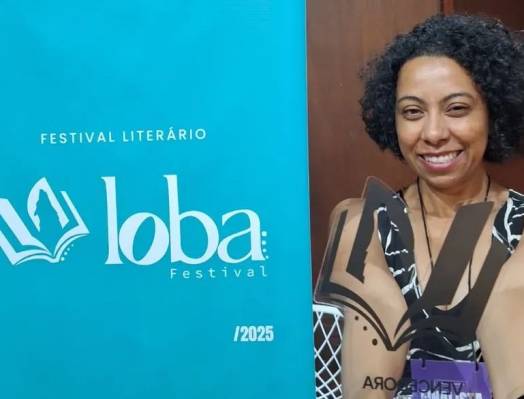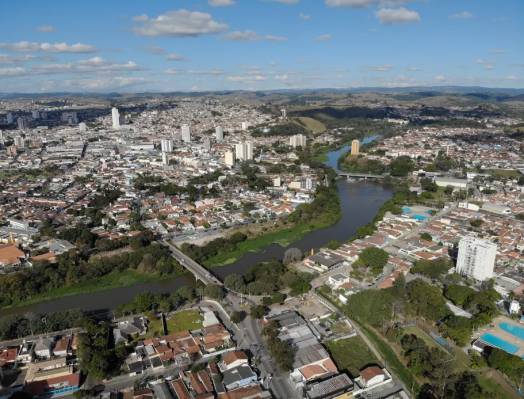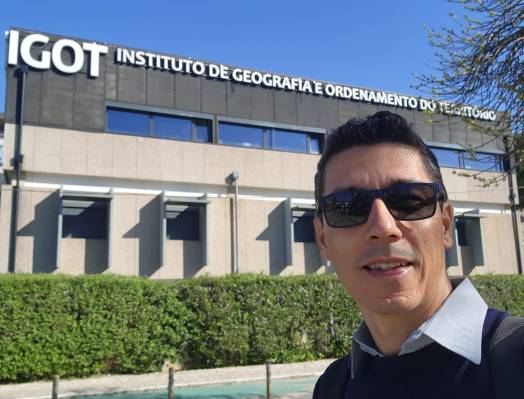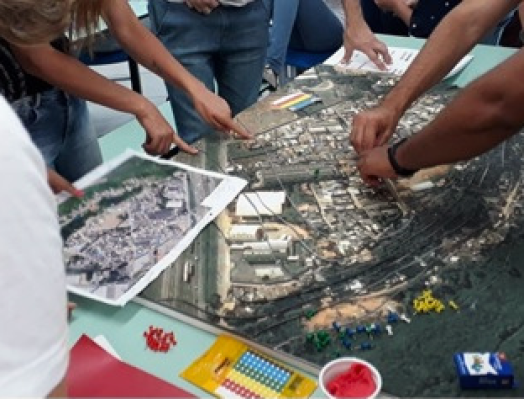


The Stricto Sensu Graduate Program in Urban and Regional Planning at the Universidade do Vale do Paraíba (Univap) aims to foster research, academic activities, and scientific and technological dissemination in the field of Urban and Regional Planning. With an interdisciplinary approach, the program focuses on the production of urban and regional space, drawing upon theories and methodologies from various areas of the Applied Social Sciences.
The program is organized into three research lines: 1. Planning, Public Policies, and Structuring of Urban and Regional Space (PPEE); 2. Planning, Population, and Socio-environmental Development (PPDS); 3. Planning, Space, and Culture (PEC).
There are two levels of academic advancement. The master’s level aims to provide a solid foundation of knowledge and learning on topics related to urban and regional planning. At the doctoral level, the focus expands to critical reflection and theorization on the production of urban and regional space, encouraging a deep and analytical understanding of the processes that shape contemporary society and the practice of urban and regional planning.
Drawing on recognized and up-to-date literature on the relationship between society, space, and the natural environment, the program seeks to contribute to the analysis of the social production of space and the planning process itself. With the participation of faculty from various fields, the program promotes the exchange of ideas and knowledge, encouraging critical thinking and interdisciplinary analysis of the political, cultural, ideological, economic, and physical-territorial variables that influence socio-spatial dynamics.
Objectives
The program has the following general objectives:
• To encourage scientific research on urban and regional planning.
• To train qualified researchers to work in academia and broader society.
• To promote the dissemination of knowledge as a tool for social development.
These objectives align with the reflection and analysis of processes aimed at building a more just and sustainable urban and regional future, by developing studies and proposing planning strategies at urban and regional scales.
Organization of Activities
The program’s activities include coursework, seminars, collective advising, and culminate in final research projects on relevant topics. These projects allow students to develop research applied to various scales of socio-spatial organization, including the metropolitan region of Vale do Paraíba and the North Coast.
Research Lines
Line 1: Planning, Public Policies, and Spatial Structuring
This line aims to study the socio-environmental characteristics of the territory and the relationships between local and regional changes and global dynamics, in order to support studies and planning strategies focused on sustainable development.
Line 2: Planning, Population, and Socio-Environmental Development
This line addresses spatial dynamics, both urban and regional, highlighting the impacts resulting from socioeconomic and political processes that influence spatial organization. In this sense, it focuses on the different actors involved.
Line 3: Planning, Space, and Culture
This research line focuses on the historical and social processes behind the formation of cities and regions, as well as collective representations of urban and rural spaces. It aims to study territorial dynamics with an emphasis on the construction of identities and social memory.
Total Credits for Master's Degree Qualification
17 credits in required courses
4 credits in elective courses, 2 credits each
9 credits for the Thesis (student's research)
Total Credits for PhD Degree Qualification
20 credits in required courses
6 credits in elective courses, 2 credits each
FACULTY
Maria Angélica Toniolo
Coordinator
PhD in Public Policies / Indiana University / USA
Lidiane Maria Maciel
Vice coordinator
PhD in Sociology / State University of Campinas (Unicamp)
Urban and Regional Planning, Public Policies, and Spatial Structuring
Adriane Aparecida Moreira de Souza
Permanent
PhD in Human Geography / University of São Paulo (USP)
Cilene Gomes
Permanent
PhD in Human Geography / University of São Paulo (USP)
Sandra Maria Fonseca da Costa
Permanent
PhD in Transportation Engineering / University of São Paulo (USP)
Viviana Mendes Lima
Collaborator
PhD in Global Health and Sustainability / University of São Paulo (USP)
Urban and Regional Planning, Population, and Socioenvironmental Development
Maria Angélica Toniolo
Permanent
PhD in Public Policy / Indiana University / USA
Mario Valério Filho
Permanent
PhD in Agronomy / University of São Paulo (USP)
Nathan David Vogt
Collaborator
PhD in Environmental Sciences from Indiana University, IU Bloomington, United States.
Rodolfo Moreda Mendes
Collaborator
PhD in Geotechnical Engineering / University of São Paulo (USP).
Sandra Maria Fonseca da Costa
Permanent
PhD in Transportation Engineering / University of São Paulo (USP).
Planning, Space, and Culture
Elizabete Mayumy Kobayashi
Permanent
PhD in History of Science and Health / Casa de Oswaldo Cruz (COC/Fiocruz).
Lidiane Maria Maciel
Permanent
PhD in Sociology / State University of Campinas (Unicamp)
Luiz Carlos Andrade de Aquino
Permanent
PhD in Philosophy of Education / Universidade Metodista de Piracicaba (UNIMEP).
Viviana Mendes Lima
Collaborator
PhD in Global Health and Sustainability / University of São Paulo (USP)
Courses are offered to provide the fundamentals of the concentration area and to support the three research lines of the Program, from theoretical-methodological and instrumental perspectives, in order to develop critical analysis in dissertation work. The courses must be completed during the first year of the master's program so that the second year can be dedicated exclusively to the dissertation.
The mandatory courses and activities total 21 credits. Among the available elective courses, the student must select, with guidance, those that can complement their research project and help them understand the study object of their dissertation, depending on the chosen research line, in order to proceed with qualification and final dissertation presentation. Elective courses are offered according to demand and may be scheduled for the first or second semester.
If the student is interested, they may take up to one-third of the elective courses at other educational institutions with graduate programs accredited by CAPES and request credit validation.
MANDATORY COURSES
COURSES | CREDITS
Theoretical Approaches and Contemporary Trends in Urban and Regional Planning | 2.0
Historical Formation of the Brazilian Territory | 4.0
Introduction to Urban and Regional Planning | 4.0
Methodology Applied to Urban and Regional Planning | 2.0
Production and Occupation of Urban and Regional Territory | 4.0
Dissertation Seminars | 1.0
TOTAL CREDITS - MANDATORY COURSES: 17.0
ELECTIVE COURSES
COURSES | CREDITS
City and Memory | 2.0
Environmental Elements of Territorial Planning | 2.0
Geotechnologies Applied to Urban and Regional Planning | 2.0
Urban Hydrology I | 2.0
Landscape Planning at the Regional Scale | 2.0
Trends in Contemporary Urbanization | 2.0
The Theory of Space in the Work of Milton Santos | 2.0
Decolonial Epistemologies for Thinking about Socioterritorial Experiences in Latin America | 2.0
TOTAL CREDITS - ELECTIVE COURSES: 4.0
TOTAL CREDITS FOR THE COURSE: 21.0
PERMANENT SCHEDULE
Monday
1st Semester: Introduction to Urban and Regional Planning (4 hours)
2nd Semester: Historical Formation of the Brazilian Territory (4 hours)
Wednesday
1st Semester: Production and Occupation of Urban and Regional Territory (4 hours)
2nd Semester: Theoretical Approaches and Contemporary Trends in Urban and Regional Planning (2 hours)
Methodology Applied to Urban and Regional Planning (2 hours)
Friday
Elective Courses
AV. SHISHIMA HIFUMI, 2911 - URBANOVA - SÃO JOSÉ DOS CAMPOS - SP - FONE:(12) 3947-1000
Boleto
Reportar erro!
Comunique-nos sobre qualquer erro de digitação, língua portuguesa, ou de uma informação equivocada que você possa ter encontrado nesta página:
Por Redação, em Master's and Doctorate




